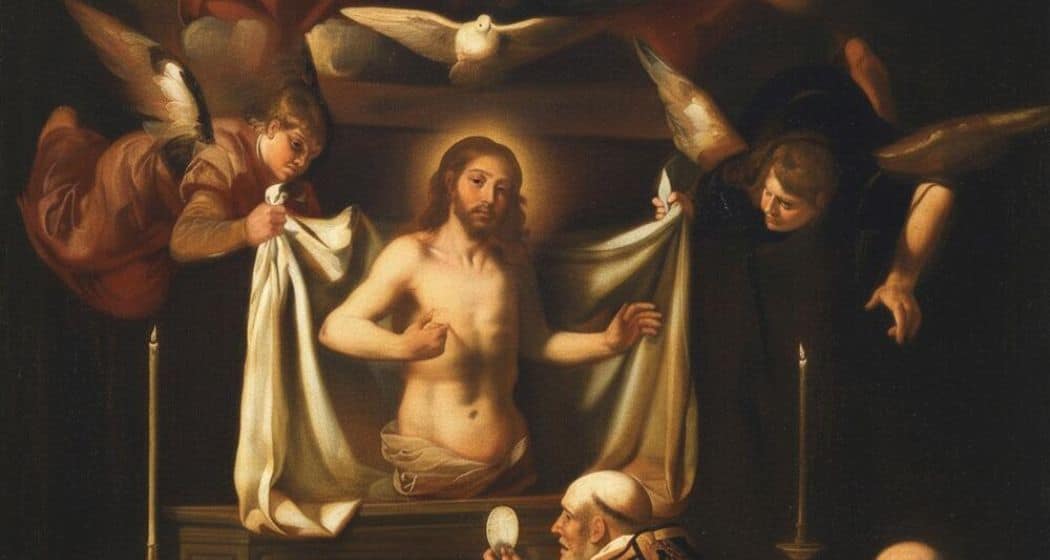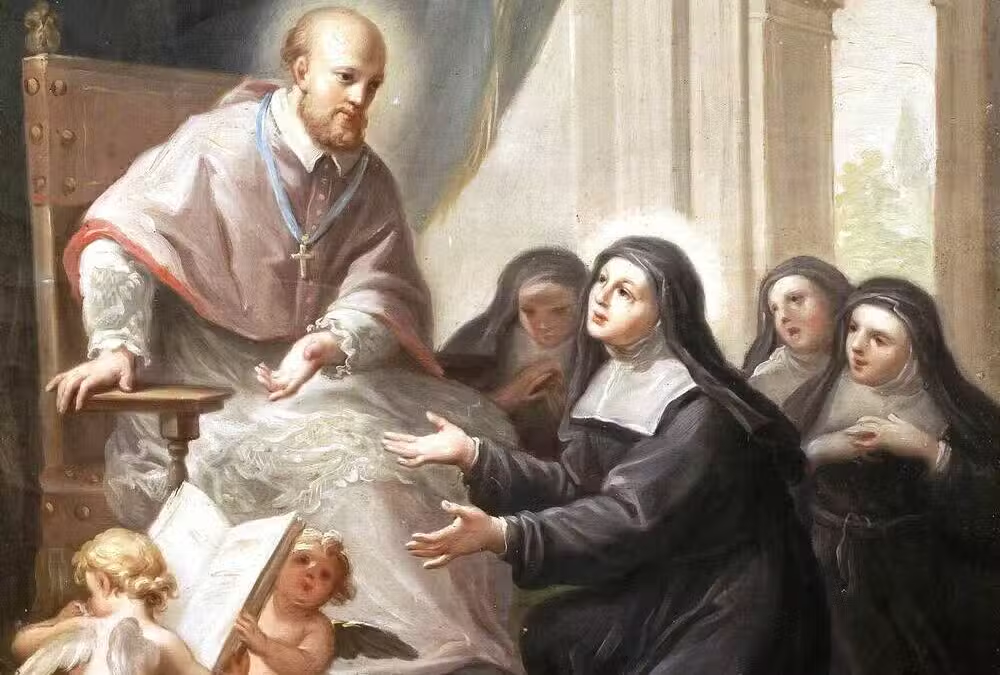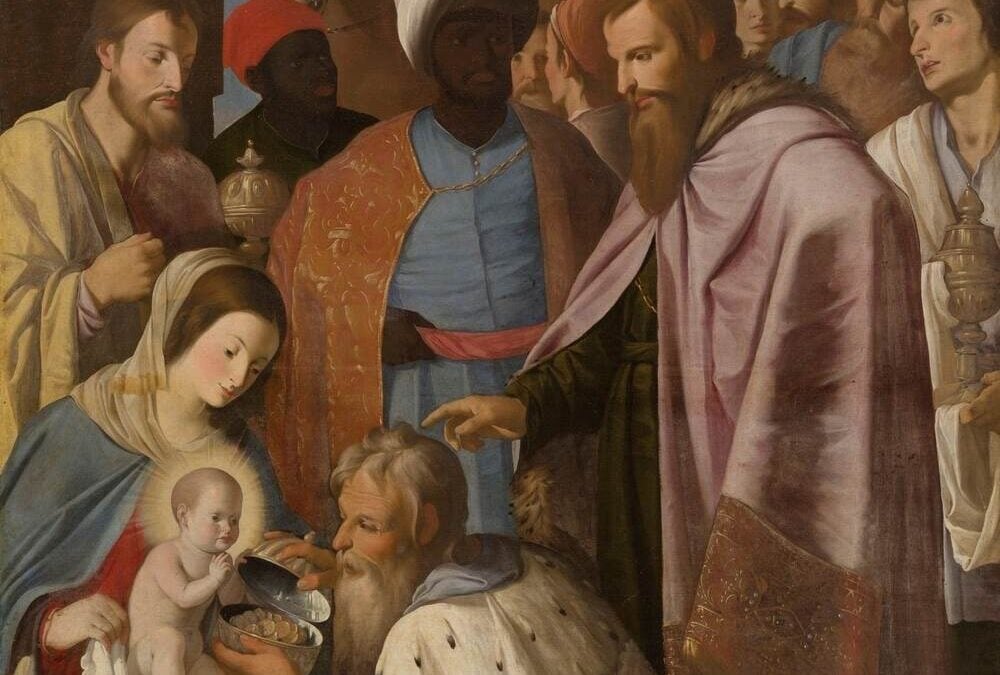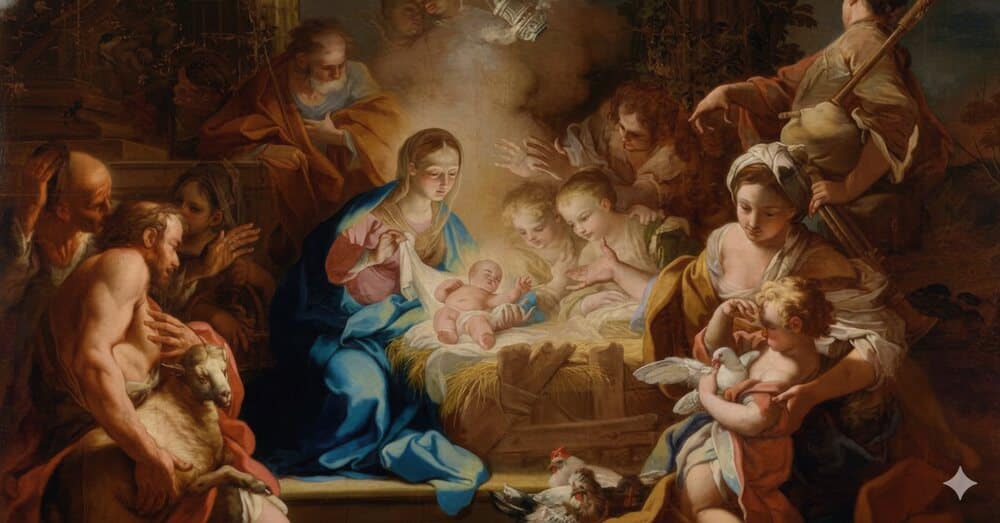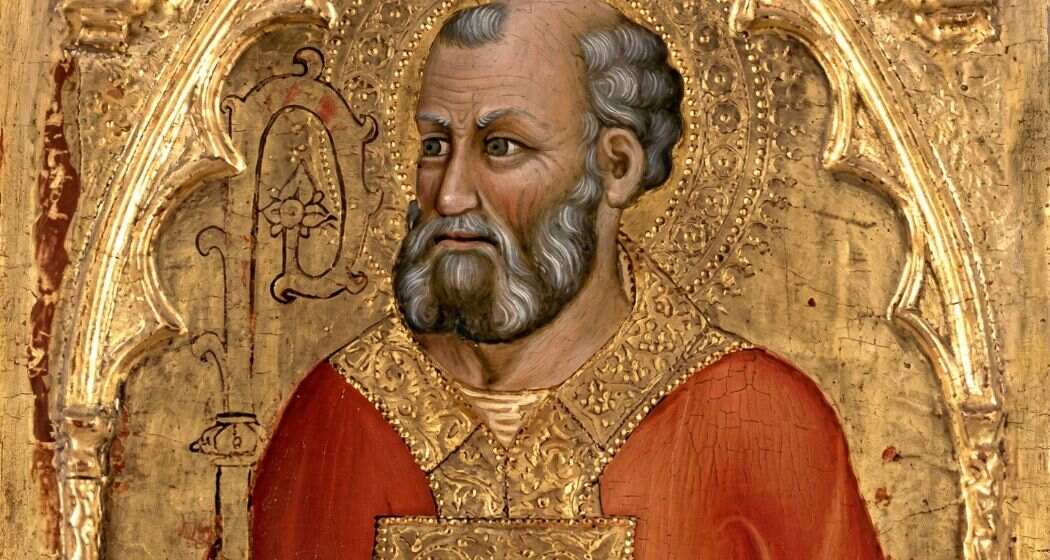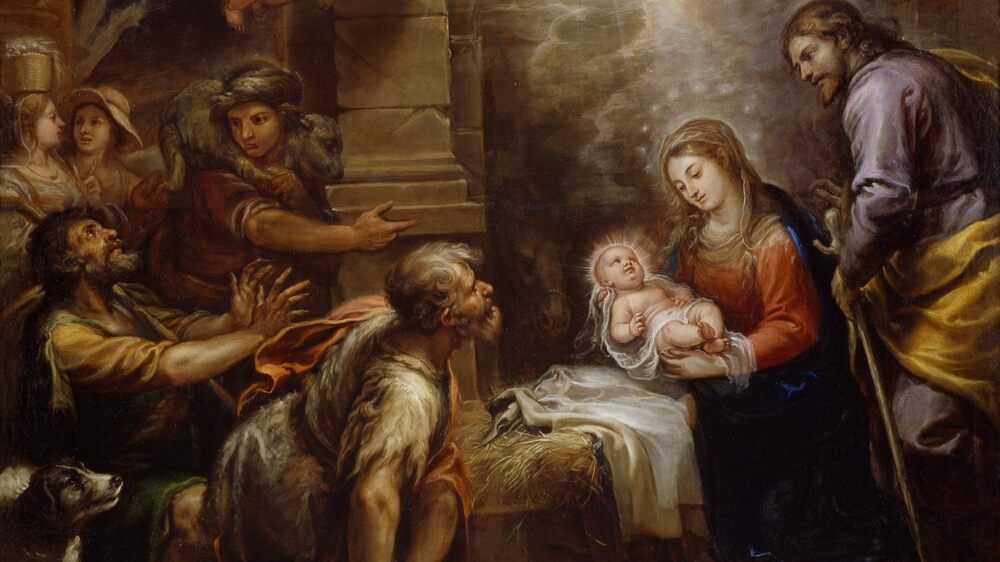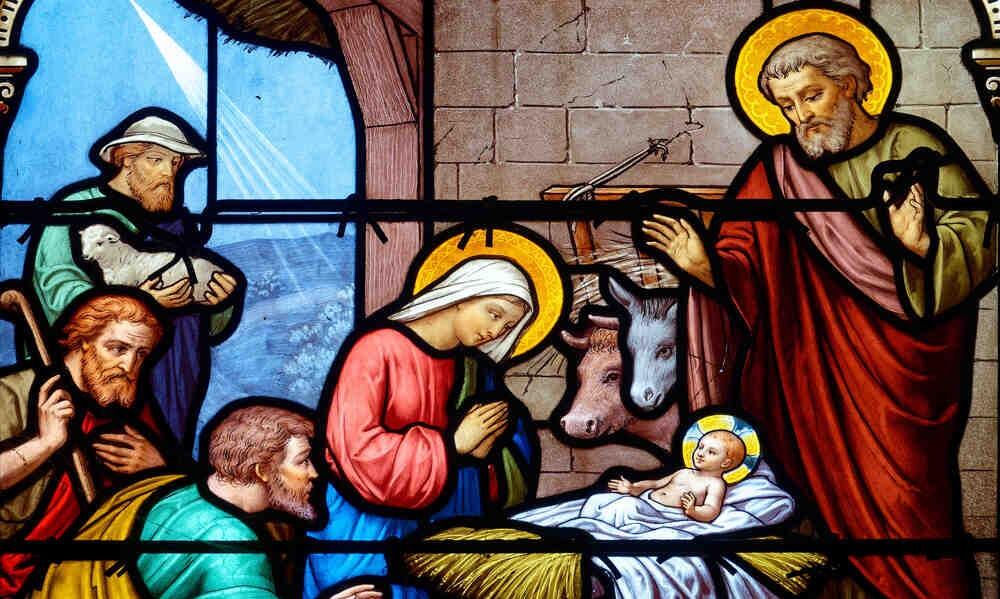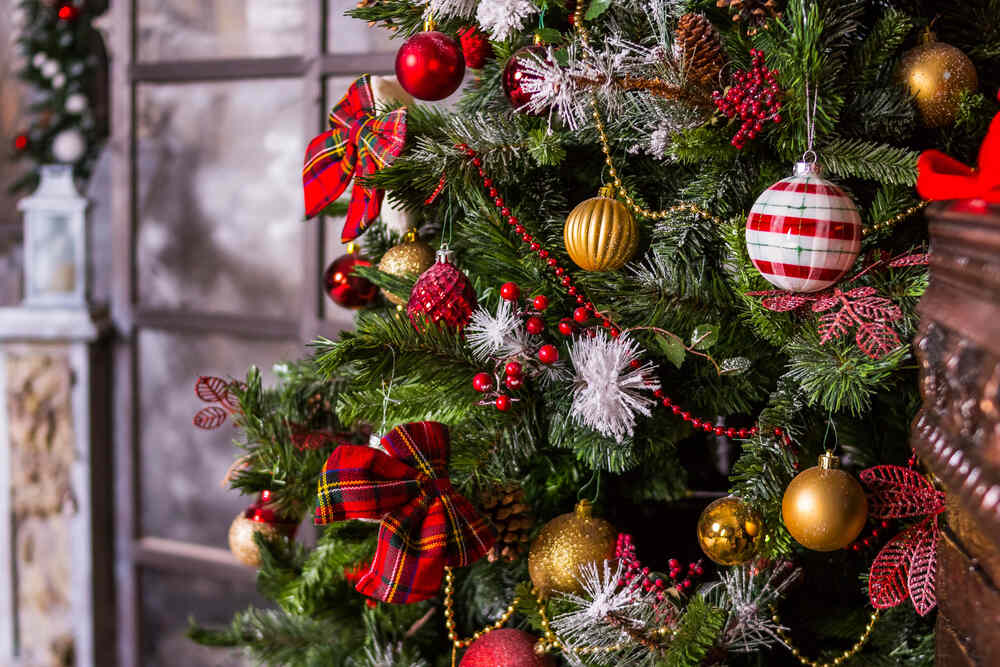Do you attend the Eucharistic celebration every Sunday? Do you know what the Mass truly is? Have you ever heard about the invisible miracles that take place in it? In this article, we will reveal not only what the Mass is, but also the astonishing miracles that, although unseen, truly occur on the altar.
To understand what the Mass is, let us look at the etymology of the word. Misa comes from the Latin missa, meaning “dismissal” or “sending forth.”As Saint Bonaventure explained, during the Eucharist, God the Father sends His Son to the altar, and in return, the Church offers Christ back to the Father as intercessor for us. Here lies the first miracle. We cannot see the Father sending His Son, yet by faith we believe this mystery truly takes place.
For the saints, the Mass was an inexhaustible treasure of graces. Such a great gift could only be described with words of fire. Saint Leonard of Port Maurice, in his precious little book The Hidden Treasure of the Holy Mass, defines it this way:
It is the sun of the Christian world, the soul of faith, the center of the Catholic Religion, toward which all rites, all ceremonies, and all the Sacraments converge; in a word, it is the summary of all that is good, of all that is beautiful in the Church of God.
You can use the Catholic Mass Times app to find the nearest Catholic church with Mass, Confession, and Adoration schedules. It will surely be useful! Download it now.
The Sacrifice of the Mass Is the Same as the Sacrifice of the Cross
What is Mass? According to the Catechism of the Catholic Church, it is the
“The memorial of the Lord’s Passion and Resurrection, in which the one sacrifice of Christ the Savior is made present and actualized” (CCC 1330).
The sacrifice of the Mass is the very same sacrifice that was offered on the Cross. Our Lord offers Himself, mystically renewing His death. Yet He does not die again, for He has risen. The same Body, the same Blood, the same Jesus who offered Himself on Calvary is the One who is offered now in every Eucharist.
There is, however, a great difference. The sacrifice of Calvary was bloody and was offered once for the sins of the world, while the sacrifice of the altar is unbloody and can be renewed countless times for the salvation of all humanity. Calvary was the means of our redemption, whereas in the Holy Mass the fruits of the Passion are applied. For this reason, the Church teaches:
As many times as the sacrifice of the cross is renewed on the altar, in which “Christ, our Passover, was sacrificed” (1 Cor 5:7), the work of our redemption is carried out (LG 3).
Therefore, we can affirm that when we attend Holy Mass, we ascend to Calvary to contemplate the death of the Lord.
Christ Himself Presides over the Holy Mass
Our Lord invisibly presides at every Eucharistic celebration. He instituted the Eucharistic sacrifice and offered himself as a victim for our salvation. Jesus imparts to it all its power by virtue of His infinite merits. St. Leonard teaches us:
At all times, every day and at all hours this Holy Priest offers to his Eternal Father his Body, His Blood, his Soul and himself, all for us, and as many times as Masses are celebrated throughout the whole universe.
In every Mass, Jesus Christ transforms the bread and wine into his most precious Body and Blood. Many saints have received the extraordinary grace of beholding this miracle with their own eyes.
Remember, every time the priest consecrates the species, at that instant, Jesus Christ himself descends and converts the bread and wine into his Body and Blood. Imagine him there, on the altar, offering himself for you.
- You may be interested in: What are the 4 ends of the Mass?
The Holy Mass is the Greatest of all Miracles
What is the Holy Mass? We can affirm that it is the great miracle:
This Divine Sacrifice is the miracle of miracles, the wonder of wonders. Its highest excellence lies being beyond the grasp of our weak understanding (St. Leonard)
But what does this great miracle consist of? It manifests in astounding realities such as the power of the priest, the miracle of transubstantiation, and the real presence of Jesus in the Blessed Sacrament.
The Power of the Priest
The voice of the priest has a prodigious strength. It is capable of calling down the Son of God from Heaven to earth, making Him present in the Eucharist as often as the Holy Mass is celebrated.
It does not matter how holy or sinful the priest may be. Jesus obeys his call to consecrate and offer Himself anew.
The Miracle of Transubstantiation
Transubstantiation takes place when the priest pronounces the words of Our Lord in the Consecration. The bread and wine cease to be bread and wine. By the words of Christ and by the invocation of the Holy Spirit, they become the Body and Blood of Christ. There is a change of substance, even though the outward appearances remain.
Through the conversion of the bread and wine into his Body and Blood, Christ becomes truly present in the Eucharist. The Fathers of the Church strongly affirmed the faith of the Church in the efficacy of the Word of Christ and the action of the Holy Spirit to bring about this conversion. Thus, St. John Chrysostom declares that:
It is not man who makes the things offered become the Body and Blood of Christ, but Christ himself who was crucified for us. The priest, a figure of Christ, pronounces these words, but their efficacy and their grace come from God. This is my Body, he says. This word transforms the things offered.
And St. Ambrose:
The word of Christ, which could make from nothing what did not exist, could it not change existing things into what they were not yet?
Our eyes see bread and wine, but faith teaches us that the Body and Blood of Jesus are there.
- You may be interested in: What are the parts of the Mass and their meaning?
The Real Presence
In the Blessed Sacrament, there are “contained truly, really and substantially the Body and Blood together with the soul and divinity of our Lord Jesus Christ, and, consequently, Christ whole and entire” (Council of Trent: DS 1651).
This Eucharistic presence of Christ begins at the moment of Consecration and endures as long as the species remain. The Catechism of the Catholic Church teaches an astonishing truth: Christ is wholly present in each of the species and in every part of them, so that the breaking of the bread does not divide him (CIC 1377).
In this way, Jesus wished to leave us a memorial of the love with which he had loved us “to the end” (Jn 13:1), even to the gift of his life on the Cross. Through his Eucharistic presence, He remains mysteriously in our midst.
It is true that you cannot see Jesus as his Blessed Mother and the Apostles did. But it is equally true that He is truly present in the Eucharist. When you doubt, follow the advice of St. Cyril of Alexandria:
Do not ask yourself if this is true, but rather accept with faith the words of the Savior, because He, who is the Truth, does not lie.
A Foretaste of Heaven
The Holy Mass is a forestate of eternal life, of that moment in which the joy of beholding of God will be full. In the Mass we contemplate Jesus veiled, with the hope of gazing into His eyes, as He truly is. The Church also teaches us that by the Eucharistic celebration we already unite ourselves to the liturgy of heaven, which ceaselessly sings the glory of God.
The Holy Mass is a divine banquet,the wedding feast of the Lamb. Christ espouses with each soul that receives him in the Eucharist:
O sacred banquet, in which Christ is our food; the memorial of his passion is celebrated; the soul is filled with grace, and the pledge of future glory is given to us!
In the Eucharistic prayer we beseech the Lord to enter his Kingdom:
where we hope to enjoy all together the eternal fullness of your glory; there you will wipe away the tears from our eyes, because, contemplating you as you are, our God, we will be forever like you and we will eternally sing your praises, through Christ, our Lord.
Angels and Saints are Present in the Holy Mass
In the Holy Mass, Heaven comes down to earth. From the Most Holy Trinity to the angels and the saints participate in the celebration.
The Church offers the Eucharistic Sacrifice in communion with the Blessed Virgin Mary and in remembrance of her, as well as of all the saints. In the Eucharist, the Church, with Mary, stands as though at the foot of the Cross, united to Christ’s offering and intercession.
Our guardian angels actively participate in the Holy Mass. They carry our offerings and petitions to the heavenly altar during the Offertory. This is the moment to entrust to the Lord all our sorrows, hopes, joys, and pains.
Moreover, during the Consecration, angels, saints, the Immaculate Virgin, and the blessed souls join us in adoring the Most Holy Trinity. Christ becomes present in the Blessed Sacrament through the action of the Holy Spirit, to be offered to the Eternal Father.
Imagine the Blessed Virgin at the foot of the altar, together with the saints who are dear to your personal devotion. In every Mass, they are truly there. Take this opportunity to implore from them the graces you need. And remember: if you have friends or loved ones who have passed away and are now in Heaven, you can be mystically reunited with them at every Eucharist.
- You may be interested in: The Liturgical Ornaments and their Meaning
Many Souls from Purgatory are Freed at Each Masss
The Eucharistic Sacrifice is offered not only for us, but also for the faithful departed who “have died in Christ and are not yet fully purified” (Council of Trent: DS 1743). Through the Mass, the Church intercedes so that these souls can soon reach Heaven.
This belief has been part of the Church since its earliest days. Shortly before her death, Saint Monica begged her son, Saint Augustine, with these words:
“Lay this body anywhere; let not the care of it trouble you at all. This only I ask of you, that you remember me at the altar of the Lord, wherever you may be.”
Saint Cyril of Jerusalem, in the fourth century, already explained the power of the Eucharist for the deceased:
We believe that great benefit is gained for the souls on whose behalf the supplication is offered, while the holy and most tremendous Victim is present. By offering to God the sacrifice of propitiation for those who have died, we render Him favorable both to them and to ourselves
In every Mass, we have the opportunity to offer the Body and Blood of Christ for our loved ones who have died, knowing that this is the most effective means to help them on their way to Heaven. Every time we live the Holy Mass with devotion and commune with fervor, we can free a soul from purgatory.
It is a Sacrifice of Thanksgiving
The Mass is a sacrifice of praise and thanksgiving to the Father. The very word Eucharist means, above all, thanksgiving. In the Eucharist, the Church gives thanks to God for all His benefits: for creation, for redemption, for sanctification.
Through this Divine Sacrifice, all of creation, loved by God, is offered back to the Father through the death and resurrection of Christ. This sacrifice of praise is possible only through Him, who unites the faithful to His own praise and intercession so that our offering may be acceptable in Him.
The Mass Appeases the Wrath of God
The Holy Mass is a sacrifice so powerful that it acts as the reason for the great mercy of God upon the world. By offering the Immaculate Host to the Father, the priest presents Innocence itself, and the Lord, moved with compassion, restrains the punishments our sins deserve. St. Leonard insists:
- You may be interested in: Liturgical Objects: Complete Guide
As we contemplate the wonders that take place in the Holy Mass, we should exclaim with the psalmist, full of joy:
O, Lord, how admirable are your works!
Let us give thanks to God for so great a gift, for this proof of His love, for His infinite mercy. Let us thank Jesus for saving us through His terrible Passion, for remaining with us in the Eucharist, for renewing His sacrifice in every Mass.
Let us pray this prayer of St. John Chrysostom before the beginning of each Mass we attend, asking for the grace to behold the face of the Lord when He calls us to Himself:
“O Son of God, receive me today as a partaker of Your mystical supper: I will not reveal the mystery to Your enemies; I will not give You the kiss of Judas; but like the thief I confess You and implore: Remember me, O Lord, in Your kingdom!”
What is Mass?
Who Invented the Catholic Mass?
The Holy Mass was instituted by Jesus Christ and transmitted by the apostles. At the Last Supper, Jesus instituted the Eucharist by taking the bread and wine, and saying: “This is my Body… This is my Blood… Do this in memory of me” (cf. Lk 22:19-20). Since then, the apostles and the early Church began to celebrate this memorial following the Lord’s command.
Who Celebrates the Catholic Mass?
What is the Importance of the Holy Mass?
The importance of the Mass is immense for several reasons. It is the same sacrifice of the Cross. In it the bread and wine become the Body and Blood of Christ, who becomes present in a true, real and substantial way. When we participate we live a foretaste of Heaven. And it is a source of grace for our salvation and spiritual growth.

